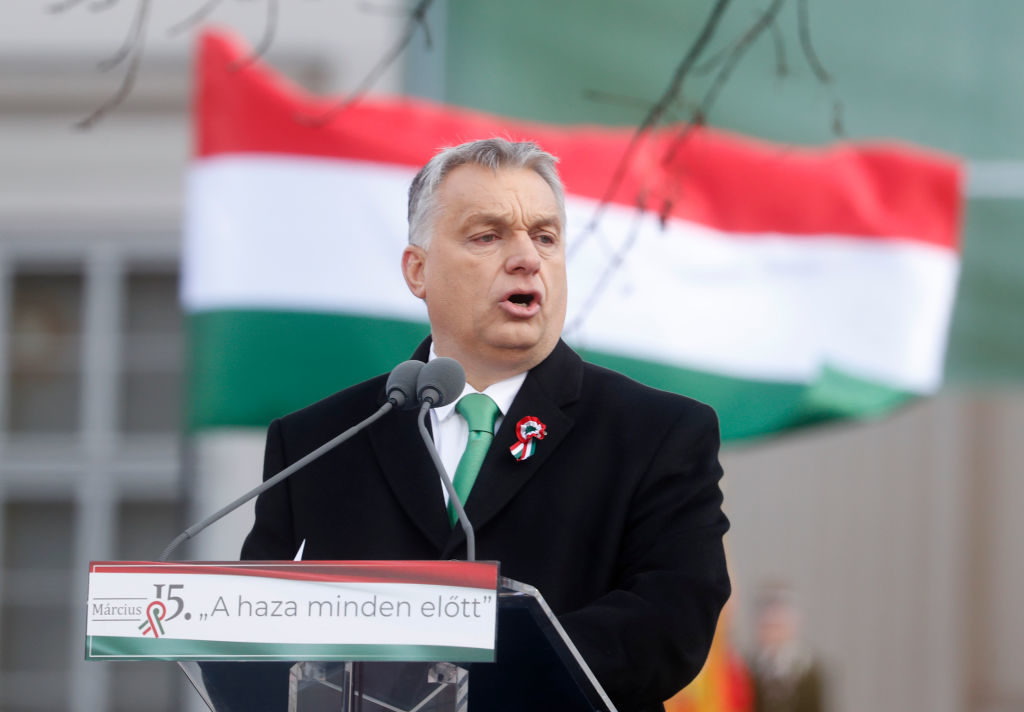Politics
A New Report Says Victor Orbán’s Government in Hungary Is ‘Systematically’ Curtailing Freedom of Expression
The report says that recent changes in Hungarian laws have allowed the government to "exert control over public opinion."

The report says that recent changes in Hungarian laws have allowed the government to "exert control over public opinion."

Vivienne Chow

A newly released study warns that artistic freedoms in Hungary are facing graves dangers.
The report, titled Systematic Suppression: Hungary’s Arts & Culture in Crisis and released this week by the Artistic Freedom Initiative, says that the government led by Prime Minister Viktor Orbán has adopted a systematic mechanism to filter out dissenting voices through changes in law and policy that “exert control over public opinion,” said Sanjay Sethi, a co-author of the report.
Since the introduction of rules and regulations that promote greater government control over cultural narratives, artists and institutions have been forced to self-censor to avoid punishment.
“Orbán has used vague legislation and policy to give his party greater authority to take liberties with the arts and culture sector with decreased visibility and accountability,” said Johanna Bankston, a co-author of the report, which includes interviews with eight arts and cultural workers conducted between April and June 2021.
“He has reshaped Hungarian media, arts, and culture to control cultural narratives, which has in turn allowed his party to stay in power longer, and may very well secure them a third term in national elections next month.”

A participant holds a placard showing Russian President Vladimir Putin in front of the parliament building in Budapest on June 14, 2021, during a demonstration against the Hungarian government’s draft bill seeking to ban the “promotion” of homosexuality and sex changes. Photo by Gergely Besenyei/AFP via Getty Images.
Since Orbán came into power in 2010 through his Hungarian Civic Alliance (FIDESZ), his government has advocated conservative, nationalist values that are in line with the country’s Christian heritage, the report said.
Against such a backdrop, the country’s arts sector suffered a great blow after new rules and regulations penalized pluralist perspectives and alternative opinions, branding as “anti-Hungarian.”
Changes in the constitution and legislature played a key role. In 2019, a controversial culture bill sought to remove the National Cultural Fund, the main government funding source for the arts. The attempt sparked outrage and saw more than 50,000 people sign a petition in protest.
The law, however, passed, allowing the government greater control over cultural institutions. Art schools are also affected after a similar overhaul.

Participants gather near the parliament building in Budapest on June 14, 2021, during a demonstration against the Hungarian government’s draft bill seeking to ban the “promotion” of homosexuality and sex changes. Photo by Gergeley Besenyei/AFP via Getty Images.
Some art workers have expressed frustrations over the current situation, saying they are forced to choose between censoring themselves and risking marginalization.
“This is an existential question for artists,” one anonymous interviewee said in the report. “Especially in the case of Hungary, there is no private market and there are no private institutions, so there is no independent scene, and everyone is depending on public funding.”
“There is then no further need for official censorship, since this process automatically guarantees the proper ideological content,” said Hungarian art historian Edit András.
Despite the seemingly dire circumstances, the report offered policy recommendations in a hopeful note.
“It is important to acknowledge that there are still many democratic institutions and processes in place in Hungary which, though they have been weakened by FIDESZ’s administrative rule, can be refortified through local and/or EU intervention,” Sethi said.
Bankston further urged the international art community to support Hungarian artists by giving them opportunities to exhibit abroad.
“We also encourage them to support independent Hungarian arts organizations through funding, artistic collaborations, and partnerships, as autonomous spaces for artistic production still exist in the country,” she said.